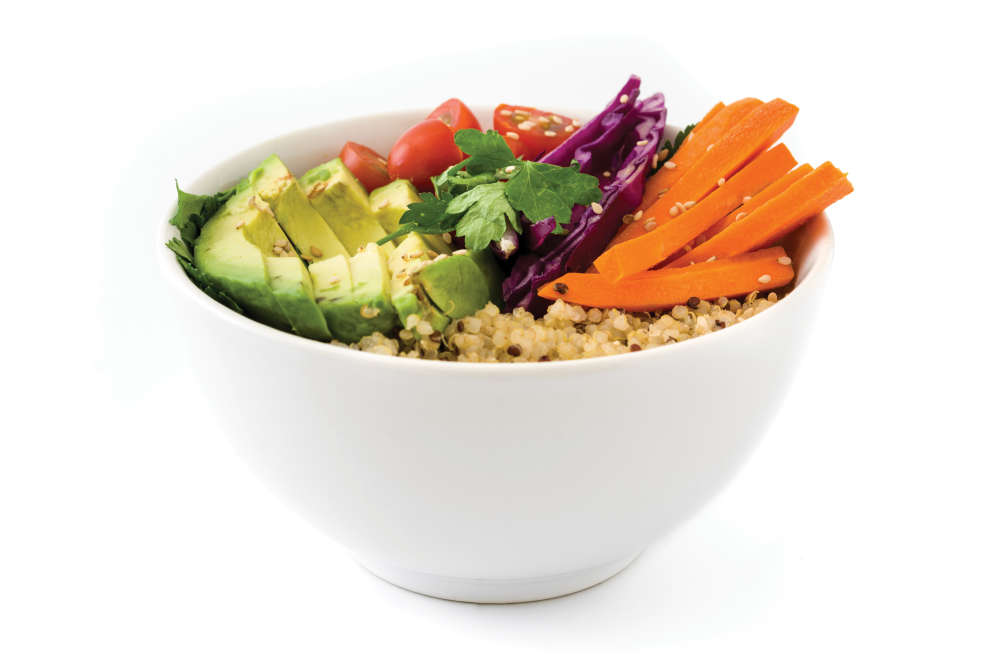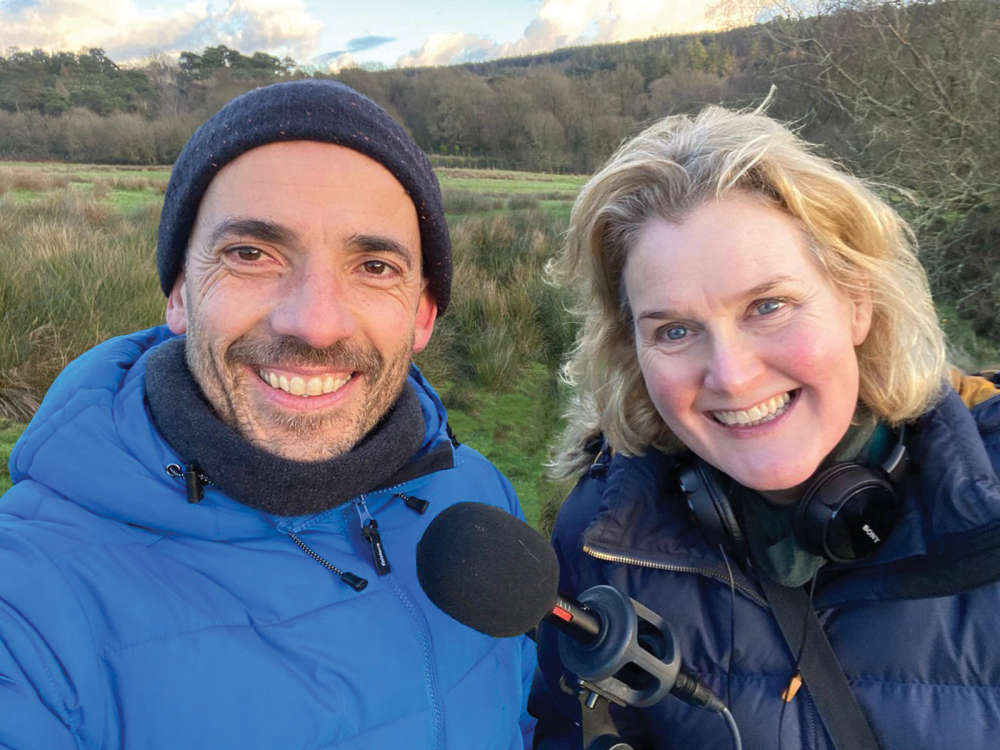
New science has discovered a direct link between certain nutrients and preventing Alzheimer’s. Sara Whatley investigates.
New research has shown that B vitamins and Omega 3 are vital nutrients that act towards stopping brain shrinkage by up to 70%. This large claim is backed by science and the team behind the Food for the Brain Foundation (www.foodforthebrain.org).
The discovery, hailed as ‘a major step towards Alzheimer’s prevention’ was first made at the University of Oxford, but has now been confirmed by research groups in Holland, Sweden and China.

Headed by Professor David Smith, who sits on the scientific advisory board of Food for the Brain and is former Chair of Pharmacology and Deputy Head of the Division of Medical Sciences at Oxford and director of the Oxford Project to Investigate Memory and Ageing (OPTIMA), the research has found that giving older people with the first signs of cognitive impairmentsupplemental B vitamins (B6, B12 and folic acid), at higher levels than can be achieved through diet, to those with sufficient omega-3 fats produced 73% less brain shrinkage in a year, compared to placebo.
There is a wealth of information on the Food for the Brain website and also a Cognitive Function Test. This can be done at any age and acts as an indicator to your cognitive function, although the sooner you do it the better as subtle cognitive decline can start 40 years before a diagnosis.
I took the test myself and found the results really interesting. It takes about 20 minutes and all you need is somewhere quiet where you wont be disturbed to complete the online test. None of the questions are difficult and it is very easy to follow. The results that came through give me a good guide on which areas I can improve on to decrease my future risk of developing Alzheimer’s.

The changes I can make are simple things, like eating a low Glycaemic Load (GL) diet to ensure my blood sugar stays level. The comprehensive results explained that,‘Those with good blood sugar balance literally halve their risk of dementia in the future. With good blood sugar balance your energy, mood, ability to deal with stress, weight control, risk for cardiovascular disease and diabetes all improve. Your mind becomes clearer, with less brain fog.’ I was also given an indication of which foods to eat, and which to avoid.
Another area in which I need to improve is my consumption of ‘brain fats’, as they term them. This includes oily fish, raw nuts, chia and flax seeds, all rich in omega-3. My results tell me: ‘Over 90% of the structural fat in your brain is made up of the omega-3 fat DHA, bound to phospholipids found in eggs and fish.Three weekly servings of fish are optimal. Fish is also an excellent source of vitamins B12, D and choline, all essential for the brain and memory.’ Oily fish is especially good, which includes salmon, mackerel, herrings, kippers, sardines and tuna. And, of course, taking omega-3 supplements.

I also noticed when taking the test there is a lot of emphasis on the importance of social and mental interaction to help maintain cognitive function; seeing friends, going to the theatre and concerts, or getting involved with a weekly quiz. I rarely do these things at my stage of life with two young children, but it is a good incentive to do more.
Although I am only in my 30’s I will certainly be striving to decrease my risk of developing dementia and Alzheimer’s in the future by making small changes to my diet and lifestyle today. It is brilliant that this information is so readily available to help all of us, at any stage of life, to stay as fit, healthy and active as we can and most importantly, to help reduce our risk for the future.
AT A GLANCE
Try these activities to keep your mind active:
- Singing or playing a musical instrument
- Learning a new language
- Doing ‘brainteasers’ such as quizzes, puzzles or crosswords
- Joining a group for arts and crafts or creative writing
- Reading or even better, joining a book group
Eat a healthy balanced diet:
- Choose wholegrain, complex carbohydrates
- Eat more fruit, vegetables, pulses, nuts and seeds
- Include plenty of protein in your diet, including oily fish
- Reduce sugar, salt and alcohol
- Look at following a Mediterranean diet
Keep your body active:
- Try doing something you really enjoy, then you will stick to it
- Join a walking or cycling club
- Doing yoga, Pilates or tai chi will help with balance and flexibility
- Track your progress with a wearable gadget or phone app
- Try a free workout video – look at the NHS website to get started
*Information from Alzheimer’s Society – alzheimers.org.uk

 Home Style: Colourful New Life
Home Style: Colourful New Life
 Money Matters: Release Reality
Money Matters: Release Reality
 World Listening Day 2024: Learning to Listen to our Environment
World Listening Day 2024: Learning to Listen to our Environment
 Spotlight Events: What's On in July 2024
Spotlight Events: What's On in July 2024
 RSPCA Celebrates 200 Years
RSPCA Celebrates 200 Years
 Be Well, Move Happy: Learning a New Skill and Water Sports
Be Well, Move Happy: Learning a New Skill and Water Sports
 10 Ideas for a Screen-Free Summer
10 Ideas for a Screen-Free Summer
 Home Style: Bold Type
Home Style: Bold Type
 What to Watch in July 2024
What to Watch in July 2024
 The Exciting Appeal of the Beach Holiday
The Exciting Appeal of the Beach Holiday
 "I quite like to end up with a setlist that involves a catalogue of human misery..." Nish Kumar on his return to stand-up comedy
"I quite like to end up with a setlist that involves a catalogue of human misery..." Nish Kumar on his return to stand-up comedy
 Money Matters: The Revenue Generation
Money Matters: The Revenue Generation
 Home Style: A Better Way of Life
Home Style: A Better Way of Life
 Weddings: The Food of Love
Weddings: The Food of Love
 Vino, Vidi, Vici: The Vineyards, Breweries & Distilleries of Sussex
Vino, Vidi, Vici: The Vineyards, Breweries & Distilleries of Sussex
 Homes Extra: Digging a Design
Homes Extra: Digging a Design
 Listening to Nature: Meet the people behind the Ashdown Forest podcast
Listening to Nature: Meet the people behind the Ashdown Forest podcast
 Home Style: Tales from the Mill
Home Style: Tales from the Mill
 SPECIAL OFFER: General Admission Tickets To The Al Shira’aa Hickstead Derby Meeting
SPECIAL OFFER: General Admission Tickets To The Al Shira’aa Hickstead Derby Meeting
 A Gourmet Escape on the Eurostar: London to Amsterdam with Culinary Delights in Almere
A Gourmet Escape on the Eurostar: London to Amsterdam with Culinary Delights in Almere